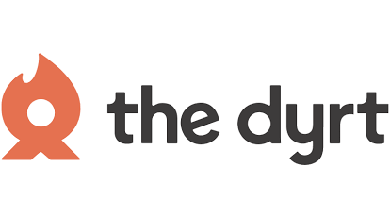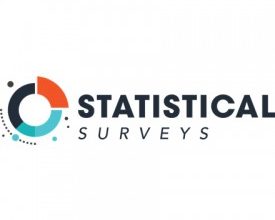Opinion: Are We Allowed To Ask Questions About Sustainability Yet?
Exploring the concerns surrounding sustainability and what it means for business.

In the margin of an old journal of mine there is a quote that reads, “Freedom is rarely, if ever, experienced by the same people that purchased it.”
I didn’t record who originally wrote that verity, but I recall the words changing something inside me.
Sometimes, words can hit with such gravity that they force you into new realities that didn’t exist a split second earlier.
The mid-20th century philosopher Richard Weaver penned a 1948 letter in the book “Ideas Have Consequences” to sound the alarm on an increasing trend of words becoming divorced from their meanings. This warning carefully considers the assertion that the better an idea is, the greater the cost of bringing that idea to light. This is no small issue for established market leaders and entrenched distribution models.
Now, 76 years later, we may want to take a second look at Weaver’s book to remind ourselves of the potential consequences of blurring the lines between truth and reality.
For many years, I have been a consultant and entrepreneur who advises and builds companies whose focus is to provide the market with more “sustainable” cultures, business models and product lines.
A couple decades in, realism has had ample opportunity to punish the idealist in me to a point of near surrender. Not that I have lost my hope, but the amount of money and time spent vainly attempting to violate market norms in the interest of what “should” be has tested every facet of finance and endurance in my efforts to convince an obstinate market of the meaning of one simple, yet intimidating, word: sustainability.
By nature, the word denotes that the benefits of the product live beyond the experience of the primary users. When the value of the product is limited to only a single generation, then the word “consumable” may be a more accurate description.
Genuine sustainability is hard. Often, sustainable products have initial lower margins compared to their competitors and slower rates of market penetration due to the self-imposed manufacturing constraints and associated costs of educating skittish customers on novel and complicated technologies.
To the credit of the well-intending innovators who have made an earnest try of improving the planet, genuine sustainability in most every form, whether corporate structure or manufacturing, is wildly more difficult to achieve and requires a level of investment that few bankers and boards are willing to suffer.
Complicating the endeavor further is the adage, “Too good to be true is too good to be true.” Products that really are solving legitimate problems have the very difficult barrier of a pitch-weary customer who has heard it all before.
This sad fact makes casualty of innovation when the marketing team convinces the manufacturer to reduce the efficacy of the product to better meet the real-world consumer expectations.
Perhaps this conclusion seems suspicious. You ask, “Why would a manufacturer have to reduce a product’s value to increase market acceptance?” I’ll use my own product as an example. In 2010, while working as a consultant, my dad brought a product to my attention that was a genuine game-changer. He had started a small service company cleaning out the black and gray holding tanks of RVs, boats and septic tanks. During a regular service, a customer introduced him to the possibility of utilizing probiotics as an alternative sustainable solution to traditional chemicals and enzymes in wastewater treatment.
A few phone calls, loads of experiments, licensing and manufacturing agreements later, TankTechsRx was born.
In my youthful ignorance, I thought this was a done deal. How could we not succeed when we could demonstrate that we are the exclusive manufacturers of a product that exchanges methane and ammonia odors for carbon dioxide and water? Not only was there no odor, but we also solved the problem of struvite (the calcium-looking particles that grow in the tank and foul sensors). And even more, the product is alive. It literally grows in a tank. Using very little probiotic as a starter base, it turns your whole tank or septic system into a many-multiple mother culture of beneficial microorganisms. And to top it all off, it is much cheaper than chemicals on a per dose comparison.
Our show sales were incredible, and some of our videos on YouTube were garnering as much as a million views.
Now, many, many flight miles later and the experience of sitting in the conference rooms and virtual meetings of most big box retailers and major distributors, I have become convinced of a couple things. First, I am more convinced than ever that there are products that really can do exactly what they claim. TankTechsRx is one of them.Secondly, the better the product, the less likely it will ever get to the shelf of a major retailer or distributor.
Why? Ideas have consequences.
Each time we stepped up to the plate, I would excitedly explain what we had for the market. Their response was, “Is there any way that you could reduce the efficacy?”
“Why in the world would I want to do that?” I responded. Their reply: “How am I supposed to place a product on the shelf that is cheaper and lasts longer than the product next to it? We make money on consumables. If your product does what you say, then it’s literally too good for us to carry.”
So, this begs the question: When “sustainability” is divorced from its meaning and becomes nothing more than a marketing ploy, how do we not find ourselves exactly where we are?
If a word is allowed to be defined by its use, then the current definition of sustainability might be more accurately defined as “A consumable whose value is defined by its expressed intent rather than its real benefit.”
The question of the future isn’t how to create sustainable solutions. In many industries, we can do that now. The question is rather, will we? Is anyone willing to plant trees they may never climb or make a product that has a higher degree of value to the consumer than to themselves?


